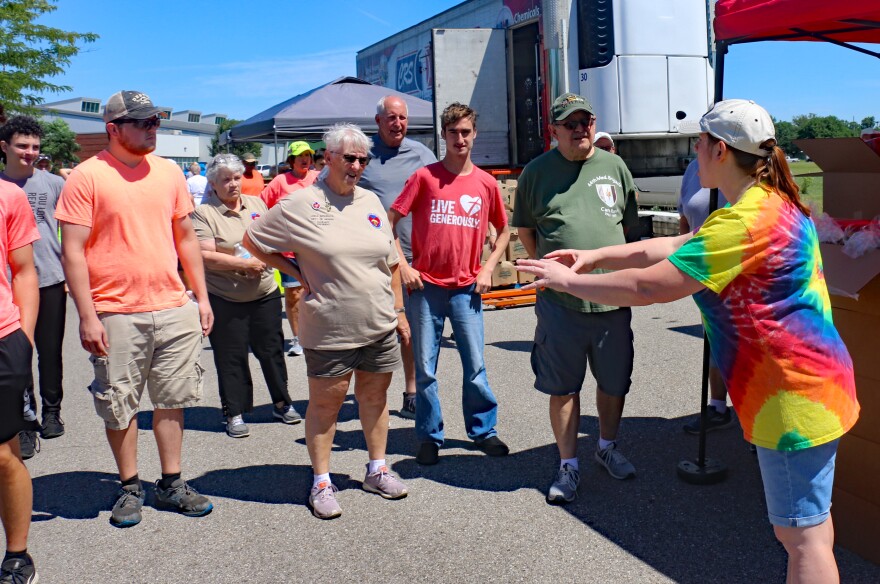One of the most enduring memories of the pandemic is the weekly Feed Evansville traffic jam.
Wednesday will be the final Feed Evansville food distribution at Hartke Pool.
At the height of the pandemic, Feed Evansville volunteers distributed seven thousand boxes of food a week. Now, it’s usually around a thousand food packages which they’re paying for themselves since the USDA Farm to Family food distribution program shut down earlier this year.

Feed Evansville co-founder Lisa Vaughan says some jobs did not come back after the pandemic, which revealed the extent of food insecurity in Evansville.
“The majority of people coming through our line are fifty five and up, and they didn’t get their jobs back is what they’re reporting to us. And then, a lot of people prior to COVID were in what we call the ALICE population, so it’s considered working class poverty. This is helping them take the pressure off of their weekly bills.”
Responsibility for addressing food insecurity now shifts to the city’s Commission on Food Security, which was formed earlier this year.




